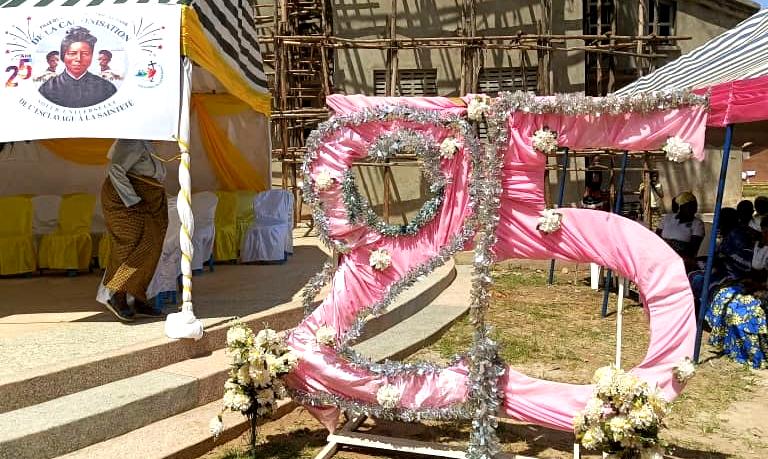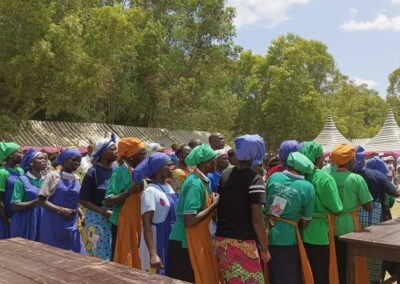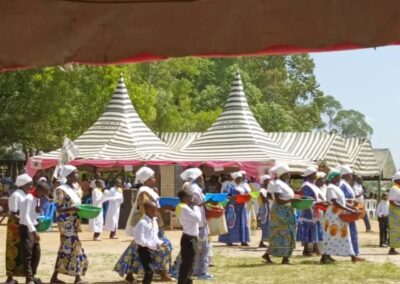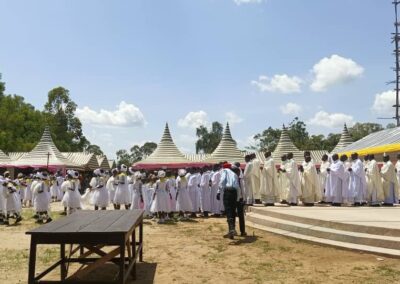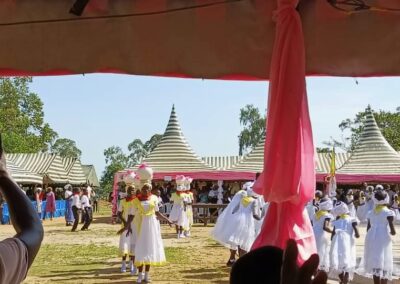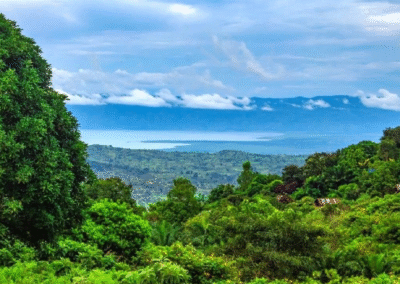In the province of Ituri, where nature—vast and untamed, still vibrant from the recently ended rainy season—seems to whisper of a deep connection with all of creation, the Canossian Sisters of the Democratic Republic of Congo gathered in the small town of Ariwara to thank the Lord for two deeply intertwined anniversaries: the 25th anniversary of the canonization of Saint Josephine Bakhita, declared a saint by Pope John Paul II in the year 2000, and the 25th anniversary of the Ariwara hospital, a precious gift from the General Council of the Canossian Institute in that same Jubilee year.
The celebration became an occasion for remembrance, for witness, and for renewed hope.
The event radiated the essence of Africa: colors, dances, songs, and faces marked by hardship, yet shining with faith. The Sisters recalled the immense value of a place of healing like the hospital in a region still struggling to ensure the right to health. They entrusted the little ones, the poor, and all who suffer to the protection of Saint Bakhita, patron saint of freedom and human dignity.
Saint Bakhita: From Slave to Saint, a Symbol of Freedom
Josephine Bakhita was born in Sudan in 1869. Kidnapped as a child, she was sold into slavery multiple times. After years of terrible suffering, she arrived in Italy with the consul Legnani and later served the Michieli family as a domestic helper and nanny. Through Illuminato Checchini, she came to know Jesus Christ. After gaining her civil freedom (on November 29, 1889), she was free to choose Christianity and was baptized, confirmed, and received her First Communion in Venice on January 9, 1890.
She became a Canossian Sister, living out her vocation with humility and deep charity until her death in 1947. Canonized in 2000, she is now one of the most beloved faces of Christian Africa. Her example speaks powerfully to all who still endure injustice, poverty, and violence—especially women.
In the Congo, where she is deeply venerated, Saint Bakhita is a model of resilience and faith, inspiring many young vocations and works of mercy—such as the Ariwara hospital, which continues her spirit of healing and liberation.
The Democratic Republic of Congo: A Land of Contrasts
The Democratic Republic of Congo (DRC), the beating heart of Central Africa, is a vast country—the second-largest on the continent—abundant in equatorial forests, mighty rivers like the Congo, spectacular lakes, and immense natural resources. Despite its breathtaking beauty and wealth, the DRC bears the scars of decades of armed conflict, political instability, and deep social inequality.
Ethnic tensions, foreign economic interests, and fragile institutions have left painful wounds. Socially, many areas—especially rural ones like Ariwara—still struggle to access basic services such as education and healthcare. In this challenging context, the presence of religious congregations like the Canossian Daughters of Charity is vital: their missions, hospitals, and Catholic schools are pillars of hope and development.
A Strong Faith Amid Challenges
Despite all its hardships, the Congolese people carry a vibrant faith. Around 50% of the population identifies as Catholic, and the local Church plays an active role in education, healthcare, and justice. Vocations are numerous, and liturgical celebrations are full of life and deeply participatory.
The Canossians, present in various regions of the country, serve in difficult yet profoundly human contexts, rich with the desire for redemption and renewal.
25 Years of Gratitude
Founded in 2000 as a tangible sign of the Jubilee, the Ariwara hospital continues to welcome hundreds of patients each month, offering basic healthcare, maternity services, and a vital reference point for entire villages. The Canossian Sisters, alongside local staff, carry out a mission that is quiet but tireless—sustained by the charity of Christ and the charism of Magdalene of Canossa.
The 25th anniversary celebration was much more than a commemoration: it was a declaration of trust, a renewed “yes” to the missionary vocation, and a tribute to the African saint who, once a slave, became a Mother to many.
In a land where the rainforest whispers mystery and humidity, where the Congo River winds through ancient stories and unspoken hopes, in a country still searching for full freedom, the voice of Bakhita rises and merges with the sounds of an enchanting and unsettling nature—a voice that calls us to believe in the dignity of every human being.

